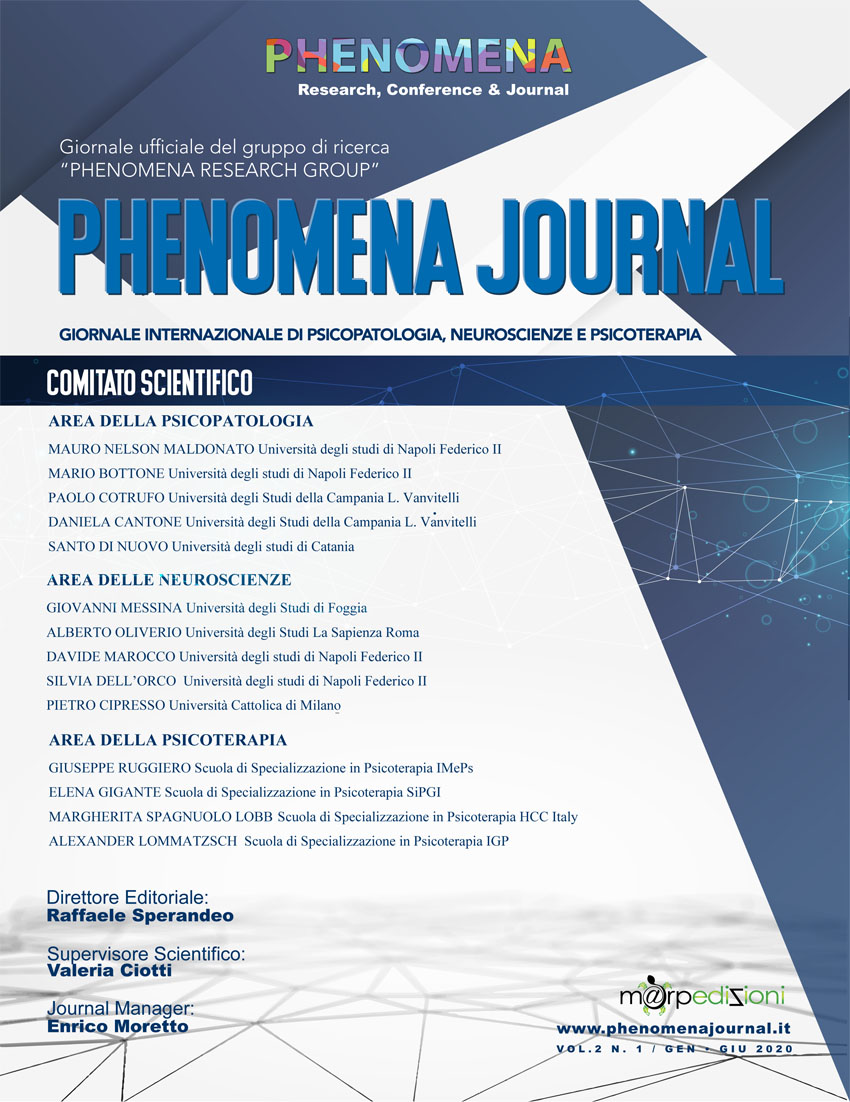Decision-making nei pazienti sottoposti a trattamento dialitico: una ipotesi di ricerca sul Disjunction Effect
Pubblicato 22.05.2020
Come citare
Abstract
Introduction: Before becoming an object of cognitive science, the topic of decision-making has questioned thinkers from all ages and disciplines: philosophers, mathematicians, logicians, economists and more. More recent studies have highlighted the neuroscientific basis of decision-making and the complex cognitive strategies involved in economic and social decisions, such as gambling.
Aims: This paper aims to focus attention on the role of stress in influencing individuals’ decision-making skills, especially in situations of risk and uncertainty. In particular, if on the one hand it is intended to investigate the relationship between stress and decisions of dialysis patients, on the other hand it is intended to highlight the so-called disjunction effect according to which decision-making situations with an uncertain outcome may lead to violate the axioms of neoclassical rationality.
Method: Starting from an analysis of the literature on decision making, attention will be focused on stress factors that influence the decision making behaviour and cognitive strategies of the dialysis-treated patients.
Conclusion: The review highlights the need to further investigate the disjunction effect and opens the way to the possibility of conducting experimental research to verify the presence of this effect in the specific case of these patients.
Keywords: decision-making; disjunction effect; caregivers; dialysis patients
Abstract in italiano
Introduzione: Prima di diventare oggetto delle scienze cognitive, il tema del decision-making ha interrogato pensatori d’ogni epoca e delle discipline più diverse: filosofi, matematici, logici, economisti e altro ancora. Studi più recenti hanno cercato di far luce sulle basi neuroscientifiche del decision-making e sulle complesse strategie cognitive che intervengono nell’ambito di decisioni economiche e sociali, come ad esempio nel gioco d’azzardo.
Obiettivi: Questo paper intende portare l’attenzione sul ruolo dello stress nell’influenzare le capacità decisionali degli individui, soprattutto in situazioni di rischio e incertezza. In particolare, se da un lato si intende indagare la relazione tra stress e decisioni dei pazienti sottoposti a trattamento dialitico, dall’altro si vuole fare luce sul cosiddetto effetto di disgiunzione secondo cui situazioni decisionali dall’esito incerto possono indurre a violare gli assiomi della razionalità neoclassica.
Metodo: A partire da una analisi della letteratura sul decision making si focalizzerà l’attenzione sui fattori di stress che influenzano il comportamento decisionale e le strategie cognitive dei pazienti sottoposti a trattamento dialitico.
Conclusioni: La review evidenzia la necessità di approfondire le indagini relative all’effetto di disgiunzione e apre la strada alla possibilità di condurre una ricerca sperimentale volta a verificare la presenza di tale effetto nel caso specifico di tali pazienti.
Parole chiave: decision-making; disjunction effect; caregivers; dialysis patients

